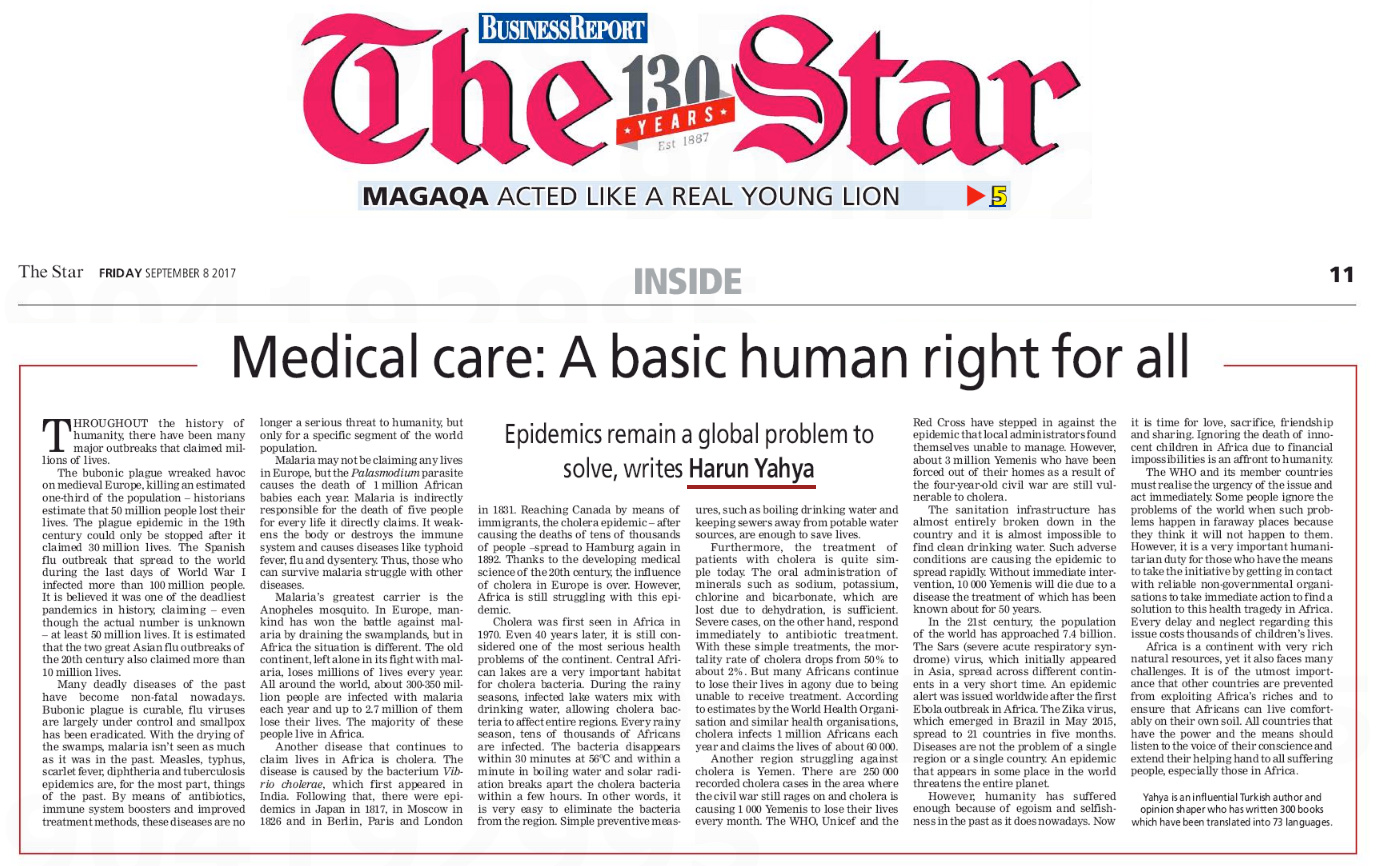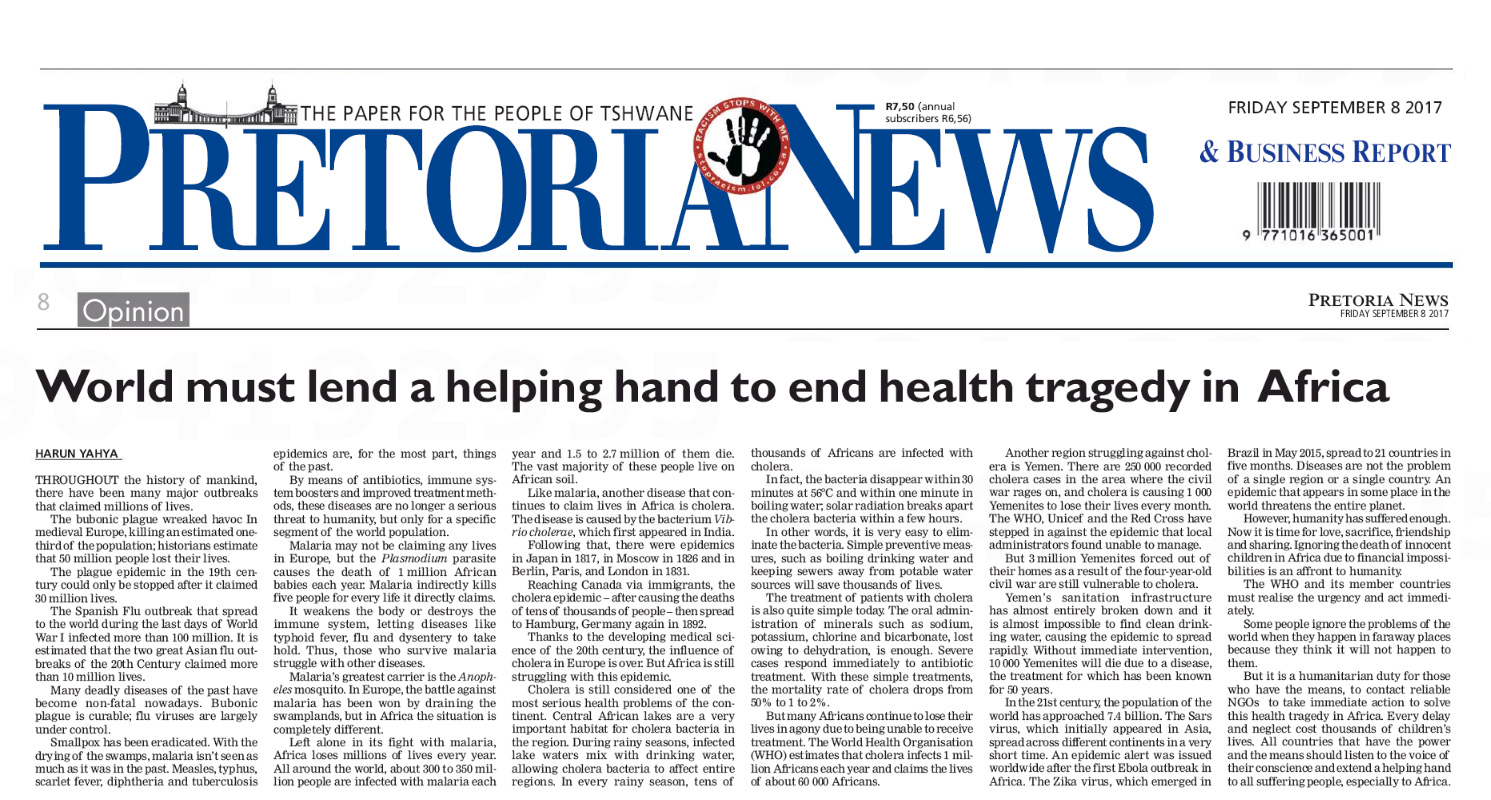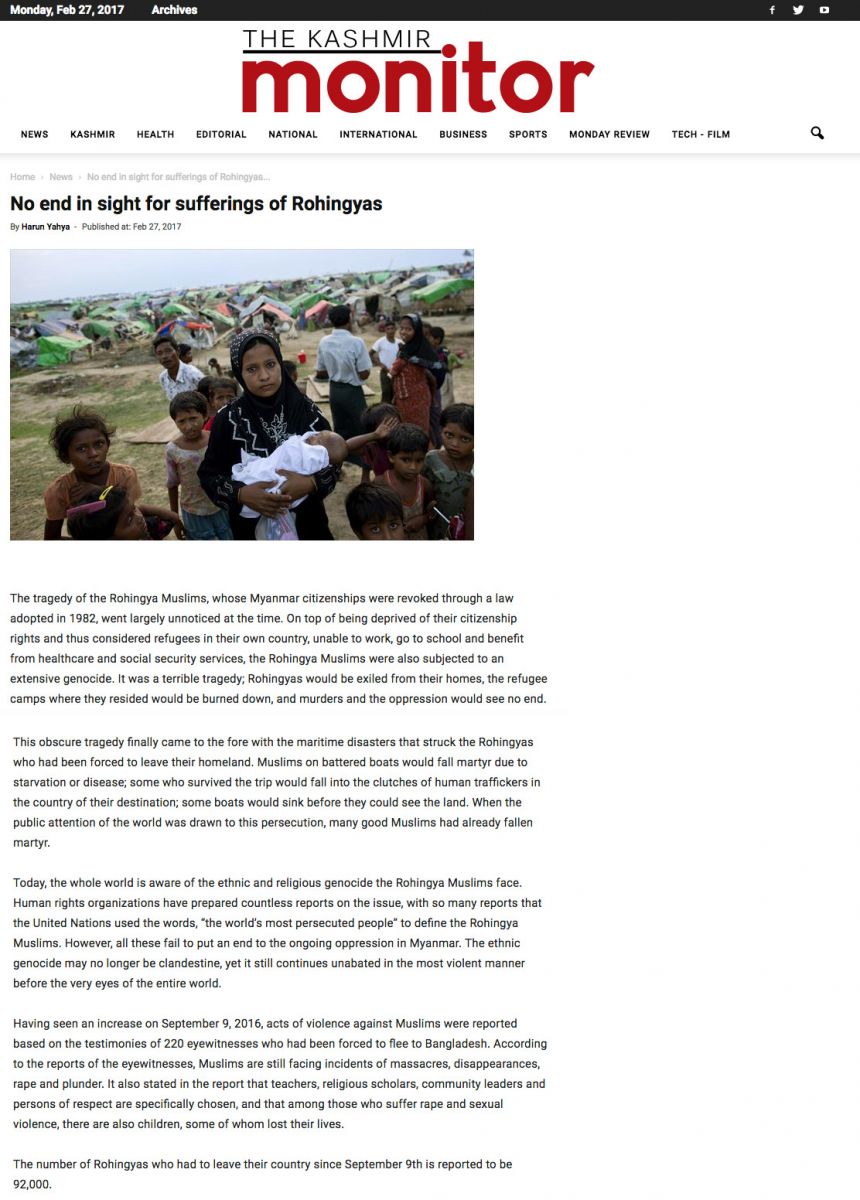Bigotry: The Dark Danger
Medical care: a basic human right for all

Throughout the history of mankind, there have been many major outbreaks that claimed millions of lives. The bubonic plague wreaked havoc on Medieval Europe, killing an estimated one-third of the population; historians estimate that a total of 50 million people lost their lives. The plague epidemic in the 19th Century could only be stopped after it claimed 30 million lives. The Spanish Flu outbreak that spread to the world during the last days of World War I infected more than 100 million people. It is believed that the Spanish Flu was one of the deadliest pandemics in history, claiming - even though the actual number is unknown - at least 50 million lives. It is estimated that the two great Asian flu outbreaks of the 20th Century also claimed more than 10 million lives in total.
Many deadly diseases of the past have become non-fatal nowadays. Bubonic plague is curable; flu viruses are largely under control. Smallpox has been eradicated. With the drying of the swamps, malaria isn’t seen as much as it was in the past. Measles, typhus, scarlet fever, diphtheria, tuberculosis epidemics are, for the most part, things of the past. By means of antibiotics, immune system boosters and improved treatment methods, these diseases are no longer a serious threat to humanity, but only for a specific segment of the world population.
Malaria may not be claiming any lives in Europe, but the Palasmodium parasite causes the death of one million African babies each year. Malaria is indirectly responsible for the death of five people for every life it directly claims. It weakens the body or destroys the immune system and causes diseases like typhoid fever, flu, and dysentery. Thus, those who can survive malaria struggle with other diseases.
Malaria's greatest carrier is the Anopheles mosquito. In Europe, mankind has won the battle against malaria by draining the swamplands, but in Africa the situation is completely different. The old continent, left alone in its fight with malaria, loses millions of lives every year. All around the world, about 300 to 350 million people are infected with Malaria each year and 1.5-2.7 million of them lose their lives. The vast majority of these people are living on African soil.
Like malaria, another disease that continues to claim lives in Africa is cholera. The cholera disease is caused by the bacterium Vibrio Cholerae, which first appeared in India. Following that, there were epidemics in Japan in 1817, in Moscow in 1826, and in Berlin, Paris, and London in 1831. Reaching Canada by means of immigrants, the cholera epidemic - after causing the deaths of tens of thousands of people - then spread to Hamburg again in 1892. Thanks to the developing medical science of the 20th Century, the influence of cholera in Europe is over. However, Africa is still struggling with this epidemic.
Cholera was first seen in Africa in 1970. Even though it has been 40 years since then, it is still considered as one of the most serious health problems of the continent. Central African lakes are a very important habitat for cholera bacteria in the region. During the rainy seasons, infected lake waters mix with the drinking water, allowing cholera bacteria to affect entire regions. In every rainy season, tens of thousands of Africans are infected with cholera. In fact, the bacteria disappear within 30 minutes at 56 degrees and within one minute in boiling water; solar radiation breaks apart the cholera bacteria within a few hours. In other words, it is very easy to eliminate the bacteria from the region. Simple preventive measures, such as boiling drinking water and keeping sewers away from potable water sources are enough to save tens of thousands of lives.
Furthermore, the treatment of patients with cholera is quite simple today. The oral administration of minerals such as sodium, potassium, chlorine and bicarbonate, which are lost due to dehydration, is sufficient. Severe cases on the other hand respond immediately to antibiotic treatment. With these simple treatments, the mortality rate of cholera drops from 50% to 1-2%. But many Africans continue to lose their lives in agony due to being unable to receive treatment. According to estimates by the World Health Organization and similar health organizations, cholera infects one million Africans each year and claims the lives of approximately 60,000 Africans.
Another region struggling against cholera is Yemen. There are 250,000 recorded cholera cases in the area where the civil war still rages on, and cholera is causing 1,000 Yemenites to lose their lives every month. WHO, UNICEF and the Red Cross have stepped in against the epidemic that local administrators found themselves unable to manage. However, some three million Yemenites that have been forced out of their homes as a result of the four-year-old civil war are still vulnerable to cholera. The sanitation infrastructure has almost entirely broken down in the country, and it is almost impossible to find clean drinking water; such adverse conditions are causing the epidemic to spread rapidly. Without immediate intervention, 10,000 Yemenites will die due to a disease, the treatment of which has been known about for 50 years.
In the 21st Century, the population of the world has approached 7.4 billion. The SARS virus, which initially appeared in Asia, spread across different continents in a very short time. An epidemic alert was issued worldwide after the first Ebola outbreak in Africa. The Zika virus, which emerged in Brazil in May 2015, spread to 21 countries in five months. Diseases are not the problem of a single region or a single country. An epidemic that appears in some place in the world threatens the entire planet.
However, humanity has suffered enough because of egoism and selfishness in the past as well as it does nowadays. Now it is time for love, sacrifice, friendship and sharing. Ignoring the death of innocent children in Africa due to financial impossibilities is an affront to humanity. The World Health Organization and its member countries must realize the urgency of the issue and act immediately. Some people ignore the problems of the world when such problems happen in faraway places because they think it will not happen to them. However, it is a very important humanitarian duty for those who have the means, to take the initiative by getting in contact with reliable non-governmental organizations to take immediate action for finding a solution to this health tragedy in Africa. Every delay and neglect on this issue costs thousands of children's lives.
Africa is a continent with very rich natural resources, yet it also faces many challenges. It is of the utmost importance that other countries are prevented from exploiting their riches for their own benefit, and ensure that Africans can live comfortably on their own soil. All countries that have the power and the means should listen to the voice of their conscience and extend their helping hand to all suffering people, especially to Africa.
Adnan Oktar's piece in The Star (South Africa) & The Pretoria News (South Africa)





